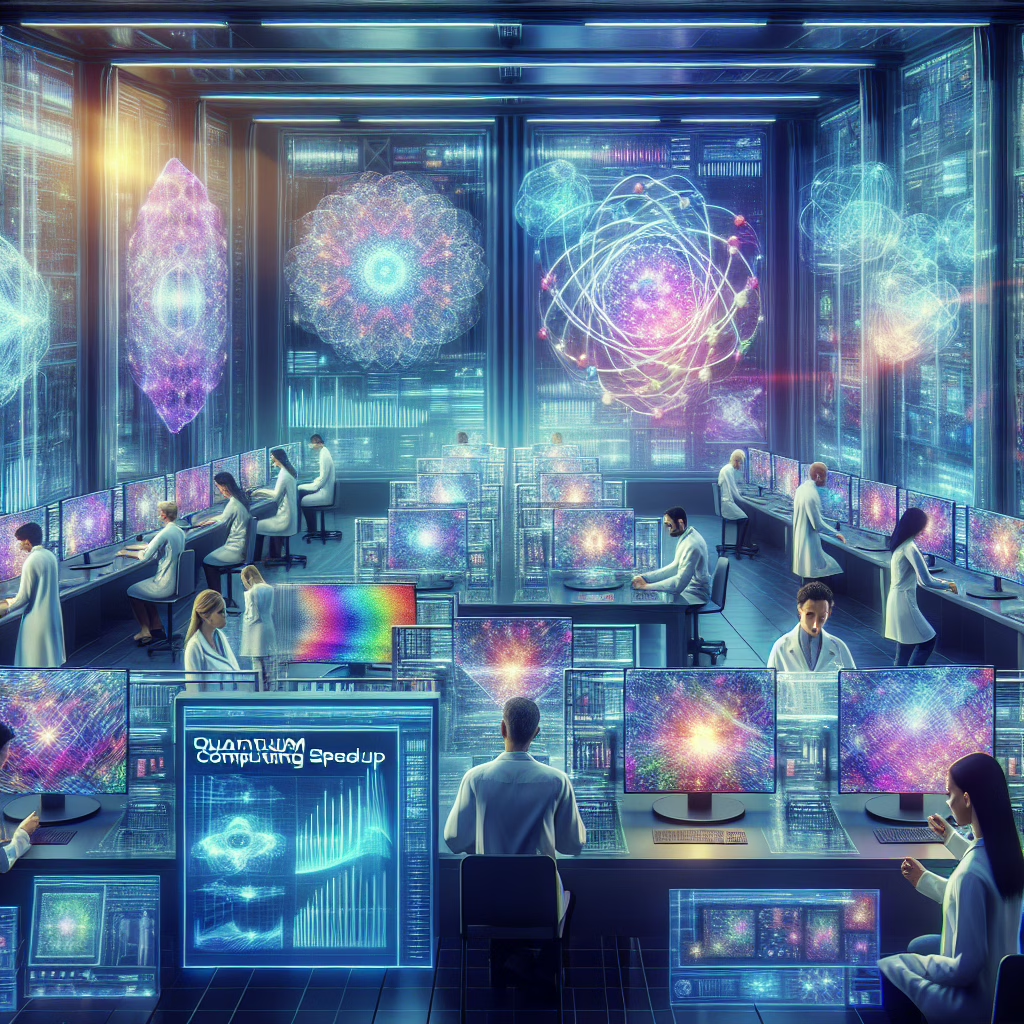In the whimsical world of quantum computing, a recent breakthrough has brought joy to researchers and tech enthusiasts alike. Quantum speedup is now tackling a huge class of hard problems, turning the impossible into merely challenging! This new development is not just a technical achievement; it’s a reminder that sometimes, even in computing, laughter is the best algorithm.
What’s Cooking in Quantum Computing?
Imagine a world where computers can solve problems faster than you can say “quantum entanglement.” That’s exactly what scientists are cooking up in their labs. The latest research reveals that quantum computers can now efficiently tackle complex tasks that have historically been like trying to find a needle in a haystack—blindfolded!
This speedup involves algorithms that can process vast amounts of data at lightning speed. For example, consider optimization problems where traditional computers take years to find a solution; quantum speedup promises results in mere moments. With this new approach, researchers are optimistic about tackling issues like climate modeling and drug discovery—talk about using tech for good!
Why Should We Care About Quantum Speedup?
You might wonder why you should care about quantum speedup. Well, dear reader, think of all the times you’ve waited impatiently for your computer to finish processing a task. Remember the time you ordered pizza and it took longer than expected? Now, imagine if your computer could place that order while solving world hunger—thanks to quantum capabilities!
The implications stretch beyond just faster pizza orders. Quantum computing holds potential for real-world applications such as logistics optimization, artificial intelligence advancements, and cryptography breakthroughs. By harnessing quantum mechanics’ peculiar properties, we’re not just speeding up computations; we’re also opening doors to possibilities we didn’t even know existed.
How Does This All Work?
Let’s break it down without getting too tangled in jargon. Quantum computers use qubits instead of classical bits. While bits can be either 0 or 1 (the binary equivalent of choosing between vanilla or chocolate ice cream), qubits can be both at once—like ordering a swirl cone! This property allows quantum computers to process multiple possibilities simultaneously.
- Qubits: The fundamental unit of quantum information, allowing for states of 0, 1, or both (superposition).
- Entanglement: A phenomenon where qubits become linked and the state of one can depend on the state of another, regardless of distance.
- Speedup Algorithms: Special algorithms designed to exploit quantum properties, demonstrating significant performance improvements.
The recent breakthroughs focus on specific algorithms known as quantum speedup algorithms. These clever formulas enable quantum machines to outperform their classical counterparts dramatically when solving specific hard problems. Researchers have successfully demonstrated these algorithms on various tasks, proving that they can indeed outpace traditional methods.
The Future Looks Bright (and Quirky!)
The future of quantum computing looks excitingly quirky! With researchers making strides in harnessing this technology, it seems like we’re on the brink of a revolution. But hold your horses; don’t expect your smartphone to become a quantum device overnight. We’re still on the long road toward practical applications.
However, as we look ahead, one thing remains clear: Quantum speedup isn’t just about numbers and equations; it’s also about creativity and innovation. With these developments, we’re not only solving hard problems but also inspiring new ways of thinking about challenges across all fields—science, art, and yes, even pizza delivery!
Join the Quantum Conversation!
Are you excited about the potential of quantum computing? Do you think it will solve more problems than it creates? Join us in discussing how quantum speedup could change our lives—or at least make waiting for your computer less painful! Feel free to share your thoughts below.
A big thank you to Wired for the original insights into this fascinating topic!
For More Information
If you’re interested in similar topics, check out:
- Microsoft’s collaboration with Western Digital on rare earth elements.
- Synology’s policy changes on third-party NAS hard drives.
- AI demand and sustainability challenges in technology.
- Insights from the Sony World Photography Awards 2025.
- The latest on Walmart’s online store issues.

